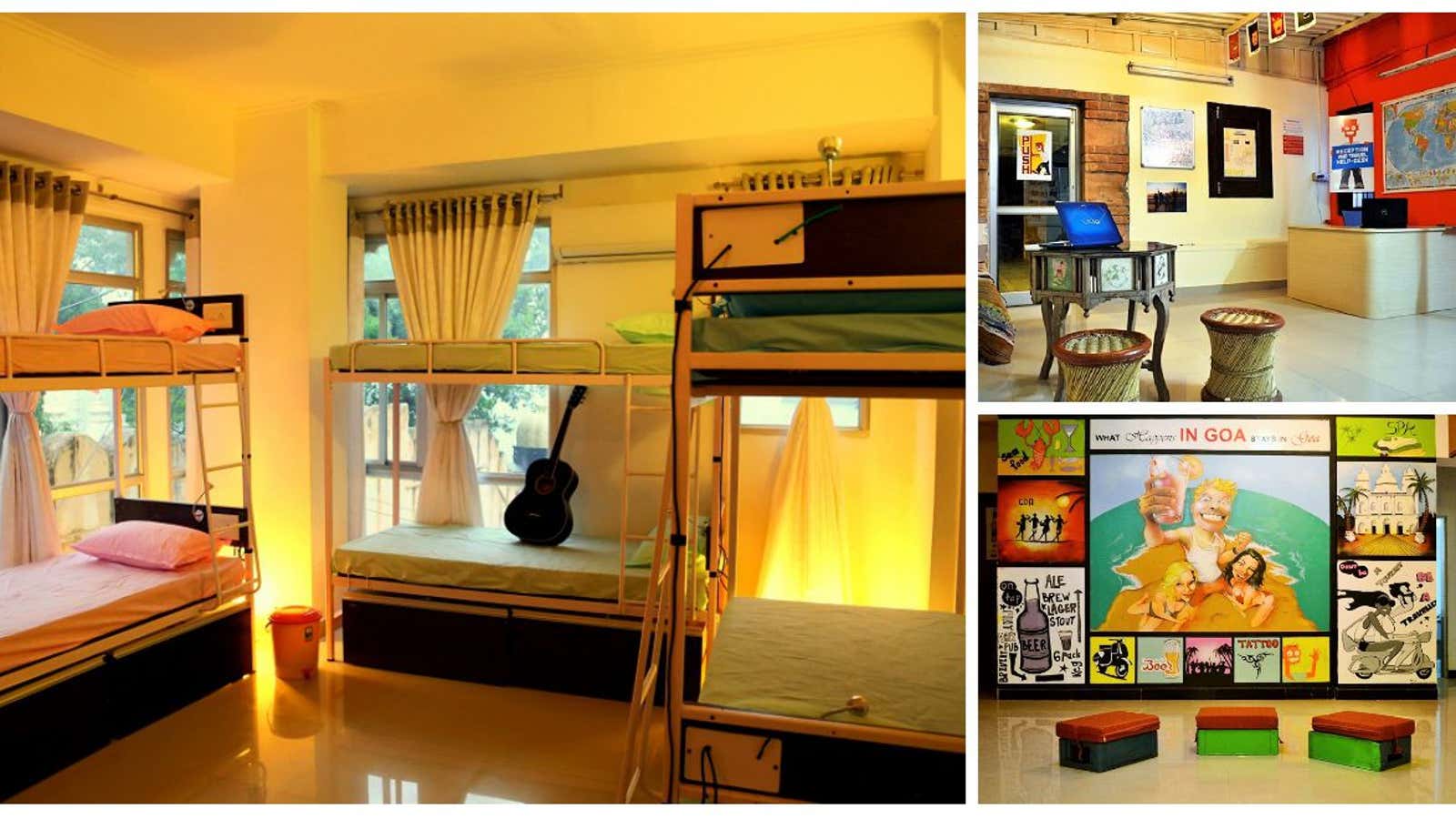When Dharamveer Singh Chouhan graduated from engineering school, he wasn’t particularly thrilled. Engineering wasn’t his calling and he didn’t want to be a “corporate slave” like many of his friends.
After staying unemployed for a few months, he landed an internship in Germany, and on weekends set off to backpack around Europe. And short of money, he would usually stay in affordable hostels—clean, comfortable and easy on the pocket.
Once back in India in 2012, Chouhan enrolled at the elite Indian Institute of Management, Calcutta, where he met the six other co-founders of Zostel, India’s first chain of backpacker hostels.
“It’s not my visit to Amsterdam or Berlin that made them special for me; it’s the way I travelled through these cities,” 27-year-old Chouhan told Quartz. “We want to give a similar experience in India—a dorm-inspired place where backpackers can interact with each other and share their experiences.”
So far, there are eight Zostel properties in India—in Jodhpur, Jaipur, Delhi, Agra, Udaipur, Goa, Vadodara and Varanasi—carefully chosen for their proximity to prominent monuments, cultural icons and other landmarks.
The hostel is consciously designed as a dorm. Every property has a common room, equipped with a PlayStation, foosball tables and board games, encouraging guests to mingle. There is also a stocked kitchenette for those inclined to cook a meal or two.
Beds are priced at little less than $8 (Rs500) per night—and the occupancy rate currently stands at a healthy 80%.
Raising money
In the last two years, the startup has attracted the attention of prominent investors—including the New York-based hedge fund Tiger Global—but its beginning was decidedly humble.
In order to raise enough money to even commence operations, the Zostel team had to participate in as many university-level business competitions as they could find in 2013. Ultimately, they won 14 competitions and raised about $78,000 (Rs50 lakh).
The first Zostel opened in 2013 at Rajasthan’s Jodhpur, which is also Chouhan’s hometown. It helped that his parents had been in the hospitality business for some time, so the startup began with a significant home-turf advantage.
Soon after, Presha Paragash, a banker turned angel investor, pumped $1 million. This was her first seed investment.
“I see Zostel disrupting the budget travel market and emerge as a well-trusted brand among backpackers,” said Paragash.
The two-year-old startup is now ready for its next round of funding. Last month, reports said the company is in talks with Tiger Global to raise up to $15 million (approximately Rs95 crore.)
“We have spoken to them (Tiger Global), but we are also in talks with other investors for our next round of funding, which should be soon,” Zostel’s co-founder Paavan Nanda told Quartz. He did not disclose the amount or the timeline of a possible deal.
Budget travel
India’s hospitality service industry is short of 150,000 rooms, according to a 2012 report (pdf) by consulting firm, PricewaterhouseCoopers. And with a continuous growth in domestic travellers, the budget hotel segment is believed to have the most significant growth.
“More than 85% of the respondents indicated that the mid-market and budget segments are likely to receive most of the investments,” the survey noted, citing a poll of industry members.
Another report (pdf) by rating agency, India Ratings & Research, outlined that a strong growth in “price-conscious travellers” backed by the lower cost structure of non-premium establishments will drive more investment into the budget hotel segment. That includes the likes of Zostel.
Challenges
But, as the market heats up, branded economy hotel chains, including Ginger Hotels and Red Fox, won’t make it easy for Zostel. These firms have more financial muscle and larger nationwide networks.
And that’s not the only problem for them. It is becoming increasingly difficult to acquire land or develop existing infrastructure and concurrently get several licenses in order to operate. “There is enough room in the market for two to three big players, but the biggest hurdle that everyone is facing is infrastructure,” said Nanda.
Still, Zostel has ambitious expansion plans. Over the next four months, it wants to open 40 more outlets by franchising its brand, and then enter highly competitive foreign markets, including Thailand and Sri Lanka, next year.
It’s a tough business, but Chouhan—once an itinerant intern—is content and confident being an entrepreneur.
“Every night, I ask myself if I’m happy with what we’re doing. Most of the time, the answer is a ‘Yes,’ so I sleep well.”
